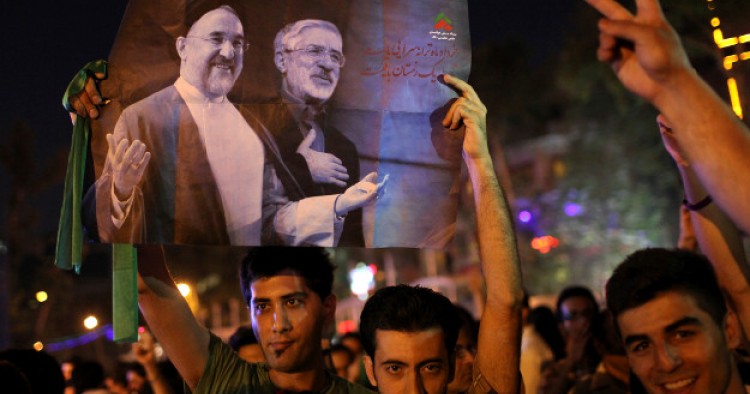More than seven years since the 2009 presidential elections in Iran, controversies related to the disputed polls and the regime’s subsequent crackdown of the protest movement continue to haunt the Islamic Republic. As the country is gearing up for next year’s presidential vote, Iranian conservatives and reformists are yet again at loggerheads over the house arrest of Green Movement leaders Mir Hossein Mousavi and Mehdi Karroubi.
The two 2009 presidential candidates – and Mousavi’s wife Zahra Rahnavard – have remained under house arrest since February 2010 without formal charges or trial. Iran’s hardliners accuse them of attempting to topple the regime – a charge they have repeatedly rejected.
On December 6, Gholam-Hossein Mohseni-Eje'i, Iran’s current deputy chief justice who served as the minister of intelligence during the 2009 elections, said the opposition leaders had committed “crimes” and the directive to keep them under house was still valid. He added that the judiciary was ready to prosecute them. Hardline outlets in Iran often lash out at reformists who demand the release of opposition leaders and other political prisoners.
On the same day, speaking at Amirkabir University in Tehran, Ali Motahari, deputy head of Iran’s parliament, called the house arrest illegal. He said he planned to meet with Supreme Leader Ali Khamenei and later with opposition leaders to resolve the house arrest issue.
President Hassan Rouhani, who is seeking reelection next May, is facing growing pressure from his reformist base to fulfil his campaign promise and do more to end the house arrest. But some reformists caution that Rouhani is legally unable to free the opposition leaders and that any public confrontation with the incumbent would benefit hardliners in the upcoming elections.
The Middle East Institute (MEI) is an independent, non-partisan, non-for-profit, educational organization. It does not engage in advocacy and its scholars’ opinions are their own. MEI welcomes financial donations, but retains sole editorial control over its work and its publications reflect only the authors’ views. For a listing of MEI donors, please click here.













